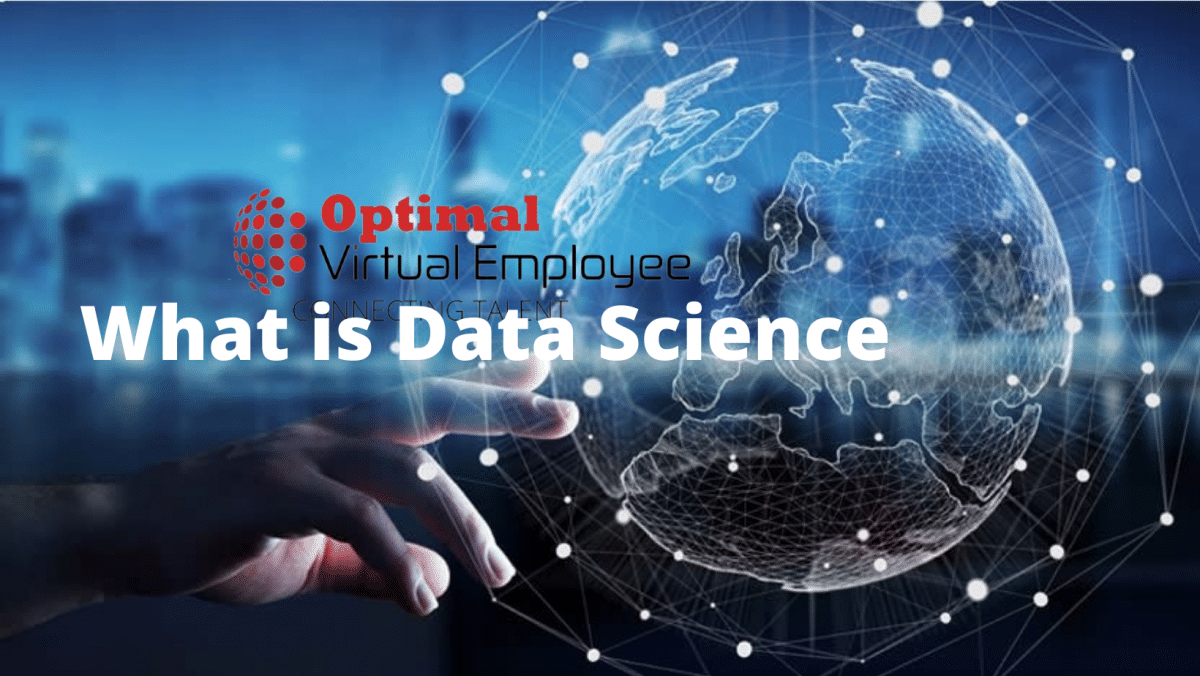Data Science continues to be proactively pursued by skilled professionals and organizations looking to collect and draw meaningful insights out of data to drive business growth. Data is an invaluable asset to any organization, but only if it is processed efficiently. The need for storage grew when we entered the age of big data. Until 2010, the major focus was towards building a cutting-edge infrastructure to store this valuable data, which would then be accessed and processed to draw business insights. If we talk about Big Data frameworks, that have taken the charge of the storage part and the focus is shifted towards the processing of the data.
Let’s look at what data science is, and how it fits into the present state of Big Data and companies.
Definition Of Data Science
Data science is a growing field that can be defined as the study of data, where it comes from, what it represents, and the ways by which it can be transformed into valuable inputs and resources to create various business and IT strategies.
Hollywood sci-fi movies often portray ideas that can turn into reality through Data Science. Data Science is truly the future of Artificial Intelligence. Thus, it is very crucial to learn and understand what Data Science is and how it can add value to your business.
What is the Need for Data Science for Your Business?
In the not-so-distant past, we were working with small sets of structured data at our disposal. The old way of Business Intelligence is failing when it comes to processing a massive amount of unstructured data. Therefore, Data Science has got some really good advanced technologies to work on bigger data that is gathered from different sources such as financial logs, multimedia files, marketing survey forms, and text files.
Let us have a closer look at the reason behind the popularity of Data Science:
- Data Science has many applications in predictive analytics. In the specific case of weather forecasting, data is collected from satellites, radars, ships, and aircraft to construct models that can forecast weather and also predict impending natural calamities with significant precision. This helps in taking measures at the right time and avoiding damage.
- Product recommendations have never been this precise, with the traditional models drawing insights out of browsing and purchase history, as well as basic demographic factors. With data science, models can train better and more effectively to show more precise recommendations.
- Data Science also aids in decision-making. Self-driving or intelligent cars are a perfect example. An intelligent vehicle collects data in real-time from its surroundings to create a visual map of its surroundings. Based on this data and decision-making Machine Learning algorithms, it takes crucial driving decisions like turning, stopping, speeding, etc.
Applications of Data Science
There are several applications of Data Science, some of them are mentioned below:
- Fraud and Risk Detection
Companies had a problem with bad debts and losses, so they brought in data scientists to rescue them from losses. Over the years, banks learned to divide and conquer data via profiling, spending, and other variables to analyze risk and default. This also helped them to push their products based on purchasing power.
- Internet Search
This must be the first thing that strikes your mind when you think of Data Science Applications.
When we speak of search, we think of Google. However, there are many other search engines, including Yahoo, Bing, Ask, AOL, and so on. The search engines mentioned above, use a data structure algorithm to deliver the perfect results for the queries asked by the user. Take the example of Google as it processes more than 20 petabytes of data every day.
- Speech Recognition
The best examples of speech recognition products are Google Voice, Siri, and Cortana. Using speech-recognition features, your life wouldn’t stop even if you weren’t able to type a message. Simply speak out the message, and it will be converted to text. However, at times, speech recognition doesn’t perform accurately.
- Gaming
Many games are made by using machine learning algorithms that instantly upgrade the whole outlook and the perception of the game. In a lot of motion gaming, your opponent, that is the computer analyzes your movements and shapes the game accordingly.
- Virtual assistance for patients and customers
Improving the clinical process builds on the idea that for many cases it is not actually necessary for patients to visit doctors in person. A mobile application can provide a more effective solution by bringing the doctor to the patient. AI-powered mobile healthcare apps can provide basic healthcare support as chatbots. One can simply describe the symptoms or ask questions, in order to receive key information about the medical condition. Apps can remind you to take your medicine on time, and if necessary, assign an appointment with a doctor.
- Healthcare
The healthcare sector receives great benefits from data science applications, especially because they provide such great insight. Procedures such as finding optimal parameters for tasks like lung texture classification employ various different methods and frameworks like MapReduce. Data Science applications also enable an advancement in the level of treatment personalization through research in genetics and genomics. The goal is to understand the impact of DNA on our health and find individual biological connections between genetics, diseases, and drug response. This research is paving the way for new discoveries in the field of personalized medicine.
Conclusion
In conclusion, Data Science makes more sense once the VR economy becomes more accessible in terms of pricing, and consumers use it often just like other apps.
One thing that we do know, however, is that they will provide us with incredible data science applications, and we can be sure that the future holds great things for us in this area.









